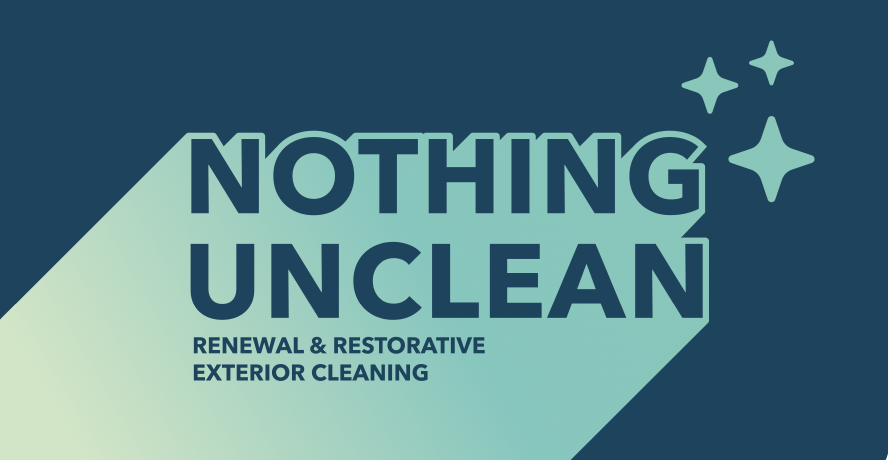Soft Washing - A Greener Way to Clean
In an era of heightened environmental consciousness, the traditional approach to exterior cleaning – pressure washing – is facing scrutiny. While effective at removing dirt and grime, pressure washing often comes at a significant environmental cost. Enter soft washing, a gentler, more eco-friendly alternative that's gaining traction.
Water Conservation:
Pressure Washing: High-pressure washers utilize substantial amounts of water to achieve their cleaning power. This excessive water consumption can strain local water resources, especially in drought-prone areas.
Soft Washing: By utilizing low-pressure applications and carefully controlled water flow, soft washing significantly reduces water usage. This conservationist approach minimizes the strain on water resources and promotes responsible water management.
Chemical Impact:
Pressure Washing: Traditional pressure washing often relies on harsh detergents and chemicals to effectively remove stubborn stains. These chemicals can contaminate local waterways, harming aquatic life and disrupting delicate ecosystems. Runoff from pressure washing can seep into groundwater, impacting drinking water sources and posing risks to human health.
Soft Washing: Soft washing utilizes eco-friendly, biodegradable cleaning solutions. These solutions are designed to break down quickly and safely in the environment, minimizing the risk of water contamination. Many soft washing companies prioritize the use of plant-based and non-toxic cleaning agents, further reducing their environmental impact.
Surface Preservation:
Pressure Washing: The high-pressure force of traditional pressure washing can damage delicate surfaces like vinyl siding, wood, and roofing materials. This damage can lead to premature deterioration, requiring costly repairs and replacements, ultimately increasing the environmental impact of home maintenance.
Soft Washing: By utilizing low-pressure applications, soft washing minimizes the risk of surface damage. This preserves the integrity of your property, extending its lifespan and reducing the need for frequent replacements, which often involve the use of resource-intensive materials.
Reduced Noise Pollution:
Pressure Washing: High-pressure washers can generate significant noise pollution, disturbing neighbors and disrupting local wildlife.
Soft Washing: Soft washing typically involves lower noise levels, minimizing disturbances to the surrounding environment and improving the quality of life for residents.
Beyond the Environmental:
The benefits of soft washing extend beyond environmental protection. It's a more effective method for removing stubborn organic growth like mold, mildew, and algae. These organisms can cause significant damage to surfaces, leading to premature deterioration and costly repairs. Soft washing effectively eliminates these harmful growths, protecting your property and improving its overall appearance.
Conclusion:
In an era where environmental sustainability is paramount, soft washing emerges as a clear winner over traditional pressure washing. By minimizing water usage, utilizing eco-friendly cleaning solutions, and preserving the integrity of surfaces, soft washing offers a more responsible and sustainable approach to exterior cleaning. Choosing soft washing is not just about keeping your property clean; it's about making a conscious choice to minimize your environmental impact and contribute to a healthier planet.
